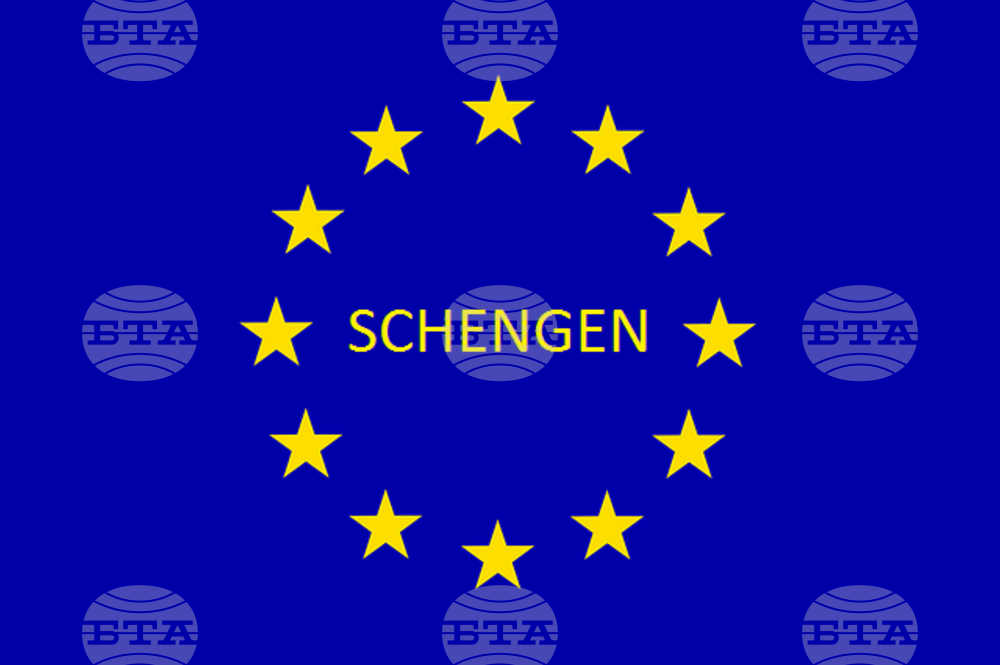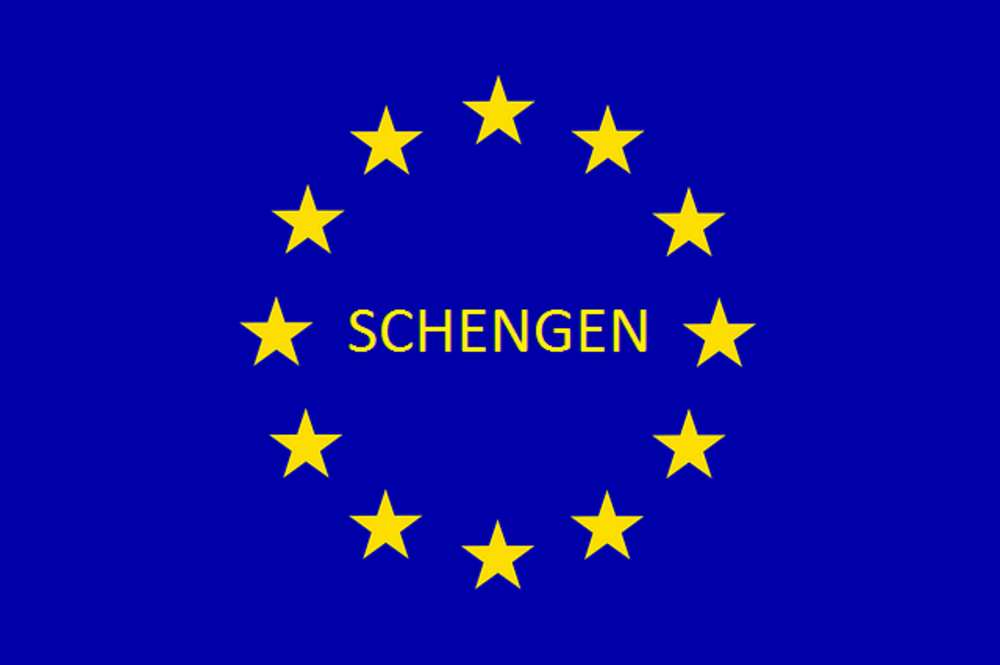site.btaBulgarians, Romanians Can Now Travel Unchecked to 28 Countries Europewide


Bulgaria and Romania have waited for this moment for thirteen years. As from January 1, 2025, their citizens can travel without regular air, sea and land controls to 28 countries Europewide: 23 EU Member States, along with Iceland, Norway, Switzerland and Liechtenstein.
Established in 1985, Schengen is the world's largest free movement area with a population of 450 million, of whom nearly 30% live in border regions and 50 million live within 20 km of an internal border. Around 3.5 million people cross an internal border daily.
Journey Fraught with Challenges
The two Balkan countries' accession to the continent’s ID-check-free travel zone followed years of preparation, negotiation and reform, fraught with political, legal, and technical challenges.
When they joined the EU in 2007, Bulgaria and Romania committed in their accession treaties to adopting the Schengen acquis (the body of laws and regulations governing the borderless Europe). The European Commission confirmed that the two countries had met technical requirements for Schengen entry in 2010, including border management, visa policy and data protection.
Their accession was nevertheless delayed due to political resistance by Member States like Germany, France, Denmark and especially the Netherlands and Austria (full membership requires unanimous support from all countries in the area). As reasons for their veto, they repeatedly cited unaddressed issues with corruption, organized crime, judicial independence and the rule of law. Debates over the two countries’ readiness for Schengen persisted even after the EU's Cooperation and Verification Mechanism (CVM), which monitored judicial reforms and anti-corruption efforts in Bulgaria and Romania, was officially lifted for both in 2022.
While Bulgaria and Romania worked hard to strengthen their judicial systems and border security between 2016 and 2020 (with Bucharest adopting stricter anti-corruption laws and Sofia establishing enhanced cooperation with Europol), political instability and public protests in the two countries often hampered sustained progress.
In 2021-2022, the European Commission and the European Parliament revved up their support for Bulgaria and Romania's Schengen accession. The Netherlands and Austria, however, remained opposed over illegal migration concerns and systemic deficiencies in border controls.
In 2023-2024, mediators France and Germany spearheaded the diplomatic effort. To boost their bid, Bulgaria and Romania enhanced their border infrastructure, implemented advanced biometric systems, and increased collaboration with the European Border and Coast Guard Agency (Frontex).
Finally, the lifting of border controls was phased in, initially for air and sea travel, effective March 31, 2024. Bulgaria’s and Romania’s full entry to the zone followed as from January 1, 2025, leaving Ireland and Cyprus the only two of 27 Member States outside Schengen.
Random security screening is implemented at airports and maritime borders to deter illegal migration and control cross-border crime. Random checks based on risk assessment will still be conducted on the land border with Romania until June 30, 2025.
Benefits
The latest addition to Europe’s border-free travel zone bears witness to the EU’s commitment to inclusivity, underscoring the importance of solidarity and mutual trust within the Union.
Citizens of Bulgaria and Romania can now experience seamless travel within the Schengen Area, and this is exciting news for the hundreds of thousands of them that crowd the Greek Aegean resorts (they will only have to negotiate Bulgaria's unfinished motorway system). The same applies to Romanians who favour holiday destinations on the Bulgarian Black Sea coast.
Even more importantly, the two new members’ business can benefit from reduced costs and elimination of delays at border checkpoints. Supply chains will get steadier and more secure, and increased competition will press prices down for European consumers.
Economists of the Bulgarian Academy of Sciences estimate the losses that Bulgaria sustained from being kept out of Schengen at EUR 870 million in 2023. For its part, Romania lost EUR 2.3 billion. Schengen accession alone is expected to add 0.7 percentage points to Romania's GDP growth and up to 1 percentage point to Bulgaria’s, according to the Vienna Institute for International Economic Studies (WIIW). The Bulgarian Ministry of Economy assesses the overall positive effect for the country's business at BGN 1.2 billion.
Last but not least, uninterrupted motor traffic will spare the environment over 46,000 tonnes in harmful carbon dioxide emissions.
Enthusiasts and Sceptics
Proponents of Bulgaria and Romania’s accession have highlighted the symbolic importance of their inclusion as a step toward a more united Europe. They have argued that delayed membership undermined EU cohesion and unfairly penalized two countries that had met the required standards. Many European officials, business leaders and civil society organizations have emphasized the economic and security advantages of an expanded Schengen Area.
Certain political leaders and segments of the public in Western Europe have voiced concerns, often amplified by populist rhetoric and domestic political considerations, about potential security risks and irregular migration, given the two countries’ strategic location on migration routes. They have argued that corruption and weak judicial systems could undermine the integrity of the Schengen Area.
External Borders
Now that Bulgaria and Romania are part of Schengen, their – and the EU's – external borders with third countries gain crucial importance for security on the continent. Bulgaria’s border with Turkiye is the top priority in this respect as a barrier to the Middle East, Africa and Asia. Enforcement against illegal crossing of that border is expected to be beefed up as from the beginning of 2025, despite a 70% decrease in the number of irregular migrants that the Bulgarian Interior Ministry reports.
Frontex will treble its deployment in Bulgaria. The European Commission has allocated EUR 130 million for logistics on the expanded external borders: motion detectors, thermal imaging cameras, patrol boats and all-terrain vehicles.
In the spring of 2024, the full-time personnel of the Bulgarian Border Police was increased by 1,200 posts. A joint contingent with Frontex is expected to go into service on January 2, with Romania contributing 40 officers, Austria 15, and Hungary 15. Greece is also expected to join, and Bulgaria will provide the rest of the complement.
Quote - Unquote
European Commission President Ursula von der Leyen: Fully in Schengen -- where you belong.
European Parliament President Roberta Metsola: It’s done. It’s decided. It’s deserved. A stronger Schengen signifies a safer & more united Europe.
Bulgarian President Rumen Radev: Bulgaria has achieved one of its strategic goals by joining Schengen, which is of significant importance for the citizens and the development of the Bulgarian economy.
Bulgarian Prime Minister Dimitar Glavchev: Bulgaria’s full Schengen membership brings economic benefits for citizens, businesses, and investors. Schengen entry is a historic event.
Bulgarian Interior Minister Atanas Ilkov: The abolition of controls at Bulgaria’s and Romania’s Schengen borders is a well-deserved result for all of the two countries' actions and efforts over the past years. I am excited, today is a historic day for Bulgaria, Bulgarian citizens and Bulgarian business, for the government and all the Interior Ministry staff.
Kostadin Kostadinov, leader of Bulgaria’s nationalist and Eurosceptic party Vazrazhdane: Bulgaria's accession to Schengen is not something to be proud of. It is something to be feared, because at this point it is emerging as the biggest threat to Bulgaria's survival and to the future of the Bulgarian nation in the last 150 years or so since the Third Bulgarian State existed. Bulgaria is in real danger of becoming the largest refugee camp in Europe. Schengen is now effectively dead. A large number of countries in Western Europe have restored border controls, and everyone who passes through and travels across, say, land borders, knows this very well. That's how it is in Germany, that's how it is in Austria, that's how it is in the Netherlands – indefinitely.
/LG/
news.modal.header
news.modal.text